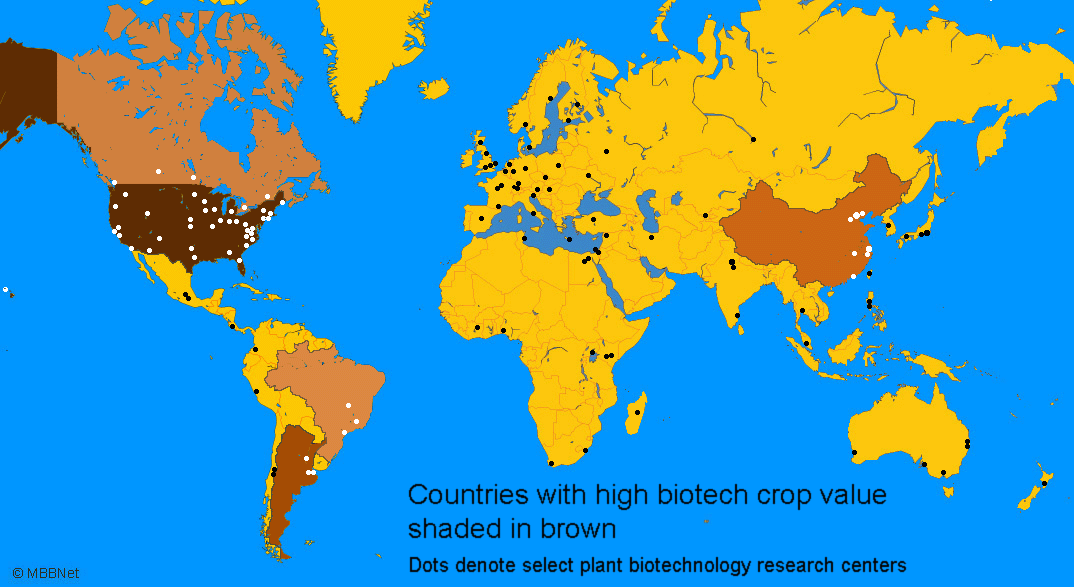

Countries shaded in brown have high biotech crop value, accounting for 98 percent of global biotech crop value and planted areas in 2003-2004 based on a study by Runge and Ryan (below). White and black dots are linked to select global plant biotechnology research centers.
|
Countries
|
Value
$27.5 billion |
Leading Biotech Crops
corn/soybeans |
Soybeans, cotton, maize (corn) and canola accounted for nearly all crop values and planted areas. Other countries with a significant level of commercial biotech crop production include South Africa, Mexico, Australia, India, Romania, Spain, the Philippines, and Uruguay (Runge and Ryan, 2004).
Additional crops of biotech research interest include alfalfa, apple, banana, barley, carrot, cassava, citrus, cocoa, coconut, coffee, flax, grape, lettuce, oil palm, olive, papaya, pea/bean, peanut, pineapple, potato, rice, sorghum, spinach, squash, strawberry, sugar beet, sugar cane, sunflower, tomato, watermelon, and wheat (Runge and Ryan, 2004).
See also "GM World View," Nature, 2003.
and
References
Map is a Mercator projection that exaggerates the size of areas far from the equator.

"Global Status of GM Crops in 2006," Clive James, ISAAA, 2006.
![]()
"Global Status of GM Crops in 2008," Clive James, ISAAA, 2008.
Maps created with GMT software
Updated 2/28/12
William Hoffman - hoffm003@umn.edu
Disclaimer: This work is a communications project of William Hoffman, a non-faculty employee of the University of Minnesota, and not the University of Minnesota. It is meant to help inform public discussion of stem cell research and human development.
![]()
The Library of Congress
![]()
is preserving parts
of MBBNet through its
Web Archiving Project.